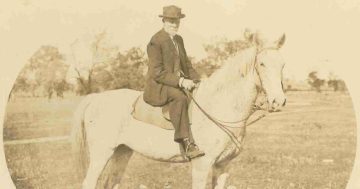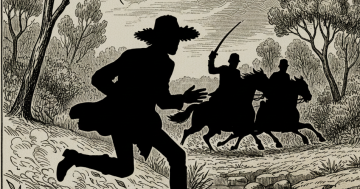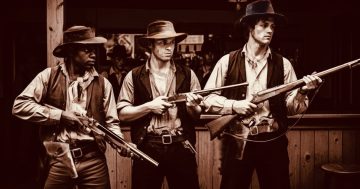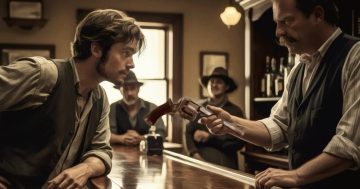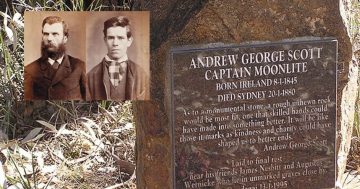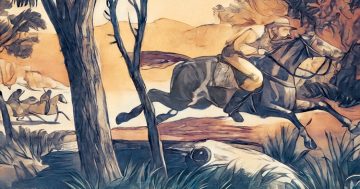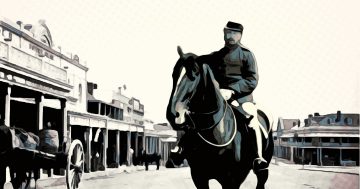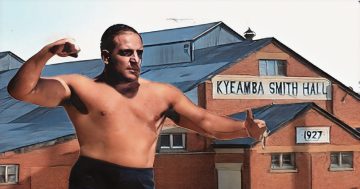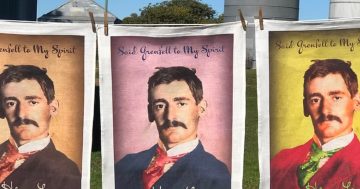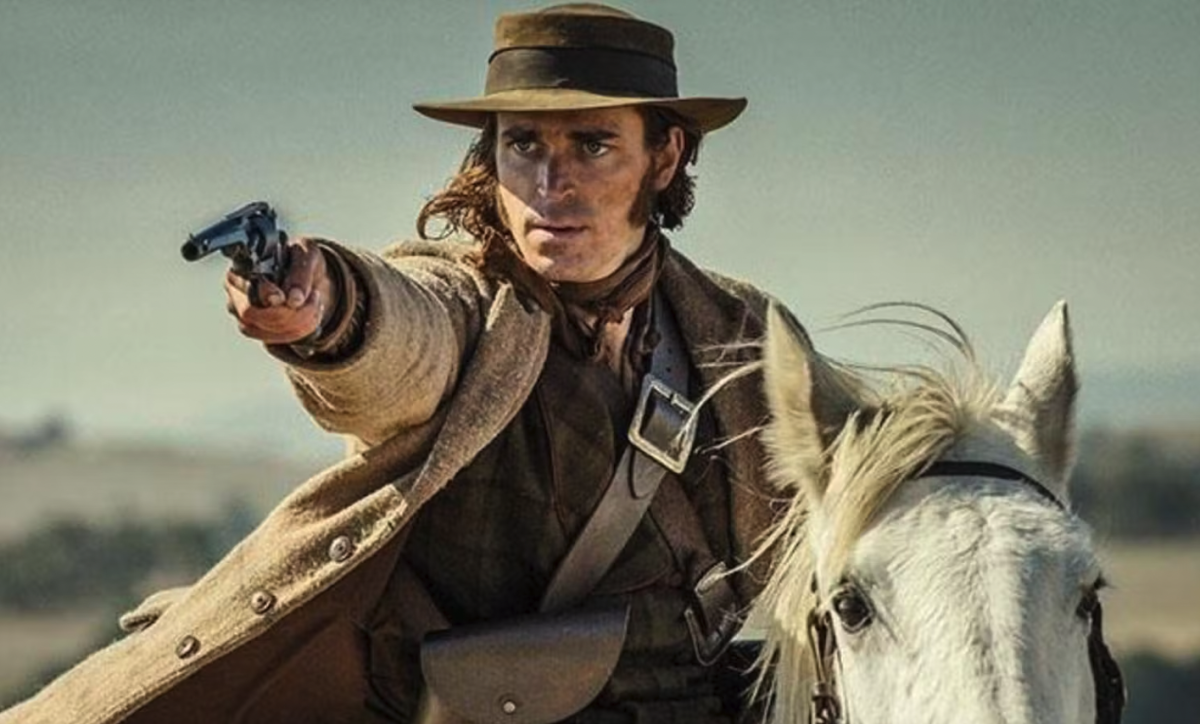
The short life of ‘Bold Ben Hall’ is brilliantly captured in the film The Legend of Ben Hall and is available on SBS On Demand. Photo: Two Tone Pictures.
James Gormly was something of a local legend in Wagga’s early settlement and is remembered as a bushman, jockey, mail contractor, coach driver, pastoralist, politician and local historian. He was twice elected mayor and served in the Legislative Council for his final 18 years.
He also bore more than a passing resemblance to the notorious bushranger Ben Hall, something that almost cost him his life!
James Gormly’s memoir, Exploration and Settlement in Australia was published in 1921 and offers a fascinating insight into the wild colonial days in the Riverina covering everything from early exploration to his adventures on the goldfields, local politics and his great success with horses throughout the years.
Gormly had several encounters with bushrangers and was involved in multiple gunfights while travelling or protecting his coaches from highwaymen.
So dangerous were the times that Gormly described how he had removed the lining from his coat pocket so that he could secretly rest his hand on his pistol butt as he rode.
The adventurer relates several stories about the Ben Hall Gang’s ventures into southern NSW, including two cases of mistaken identity at Old Junee and Cootamundra.
“The nearest I have known Ben Hall and his confederates to approach Wagga was at TW Hammond’s Station at Junee, which they stuck up and robbed,” he wrote.
Several days after the incident, Mr Hammond journeyed into Wagga and told his tale of encountering Hall, John O’Meally and John Gilbert.
When he had first seen Hall approaching, he mistook him for Gormly and, rather than reaching for one of the guns he kept loaded and ready in the house, he went out to meet him.
“Had he not been taken off his guard he would probably have been able to resist the gang successfully,” Gormly said.
“It was only when he found himself covered by Hall’s revolver and heard the sound of two other horsemen approaching that he realised that he was trapped.
“The bushrangers acted courteously to Hammond and the females on the station, and departed when they had secured the small amount of money Hammond had in his pockets, as well as provisions and some goods from the station.”
Hammond asked whether Gormly had lost the familiar chestnut horse that he often raced in the district as Hall’s mount had been identical. He added that “Hall was wearing a loose, short cloak which covered his body and arms” similar to the one Gormly wore when he rode.
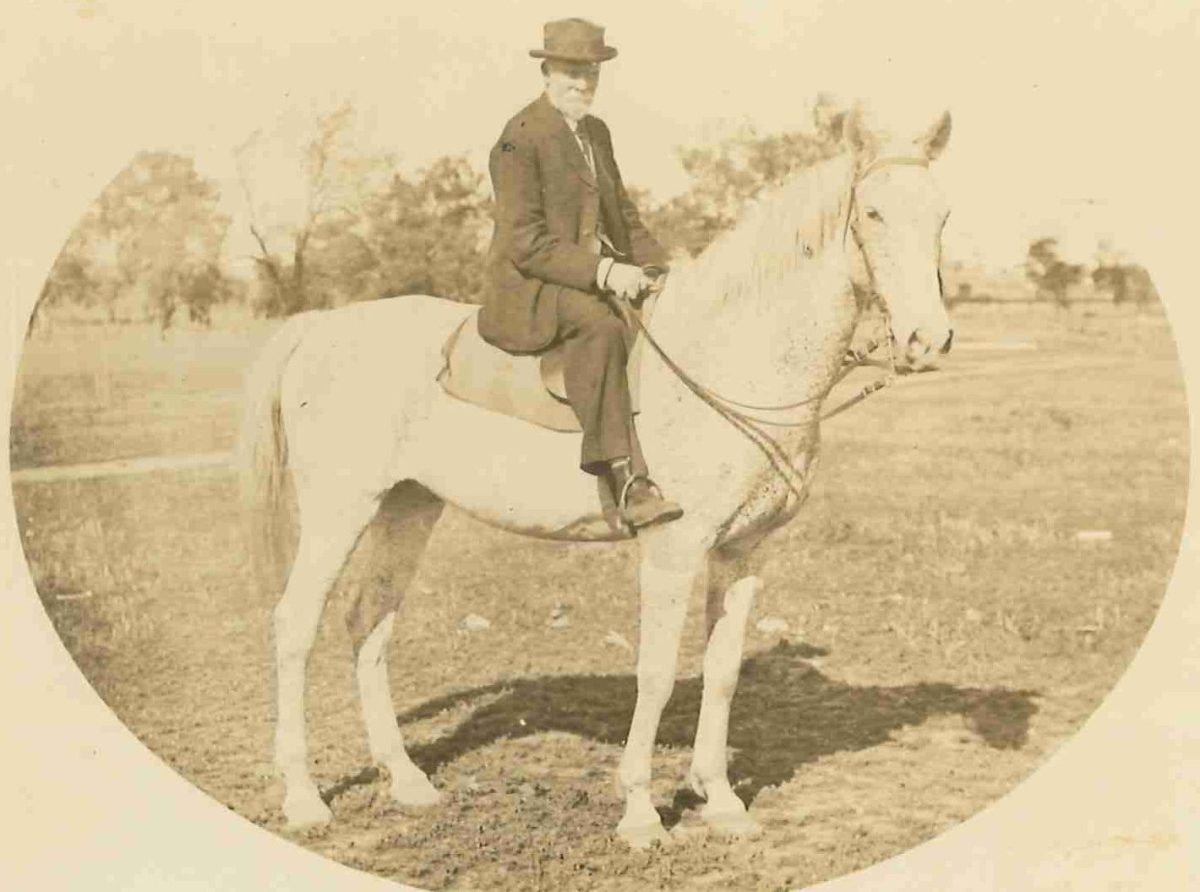
James Gormly on horseback from the Gormly Family Collection. Photo: CSURA.
In the following weeks, Gormly recalled that the bushrangers had “infested” the area and murdered a shopkeeper named Barnes at Murrumburrah.
Travelling from Wagga to Cootamundra to pick up a couple of coach horses, Gormly noted that he “rode the chestnut horse referred to by Hammond, and was wearing a cloak like the one Hall was said to be usually dressed with”.
Arriving at dusk, he rode to the only public house in Cootamundra, hitched his horse to a lamp post and stepped into the verandah where three uniformed police troopers stood.
“As I approached the door, one of the troopers walked backward up the passage, keeping his face towards me and I could hear the footsteps of the other two men following me up,” he wrote.
“Like a flash of lightning, it dawned on me that I was in danger of being shot. My arms and hands were covered by my cloak, which reached to the hips. I could have carried a revolver in each hand without the weapons being seen.”
But just as the trooper in the hall raised his revolver and pointed it at Gormly, a young girl entered the hall from a side door and stood between them.
“How are you, Mr Gormly?” she asked, instantly de-escalating the situation by her recognition.
“One of the troopers afterwards told me that he was just about to fire when the girl addressed me by name. He said he was convinced that I was Ben Hall,” a relieved Gormly recalled.
But the close calls were not quite over and as Gormly was riding home through the bush the next day, a familiar voice called for him to “stand”.
“I recognised the voice as being that of O’Meally, who I knew to be a murderer of Barnes and a blood-thirsty bushranger. So in one second I had my head under my horse’s neck and the horse racing downhill through rocks and scrub,” he wrote.
“I then heard the sharp crack of three rifles, and one bullet cut a twig close to my horse’s nose. I was determined not to be captured and lose my horse, which had won me many races.”
Intriguingly, Gormly closes his tale with a hint at past encounters, adding, “Besides, O’Meally had an old grudge against me”.
James Gormly’s Exploration and Settlement in Australia remains in print and is available from Collins Booksellers in Wagga.
For a great insight into the time of the bushrangers, the film The Legend of Ben Hall is available on SBS On Demand.







